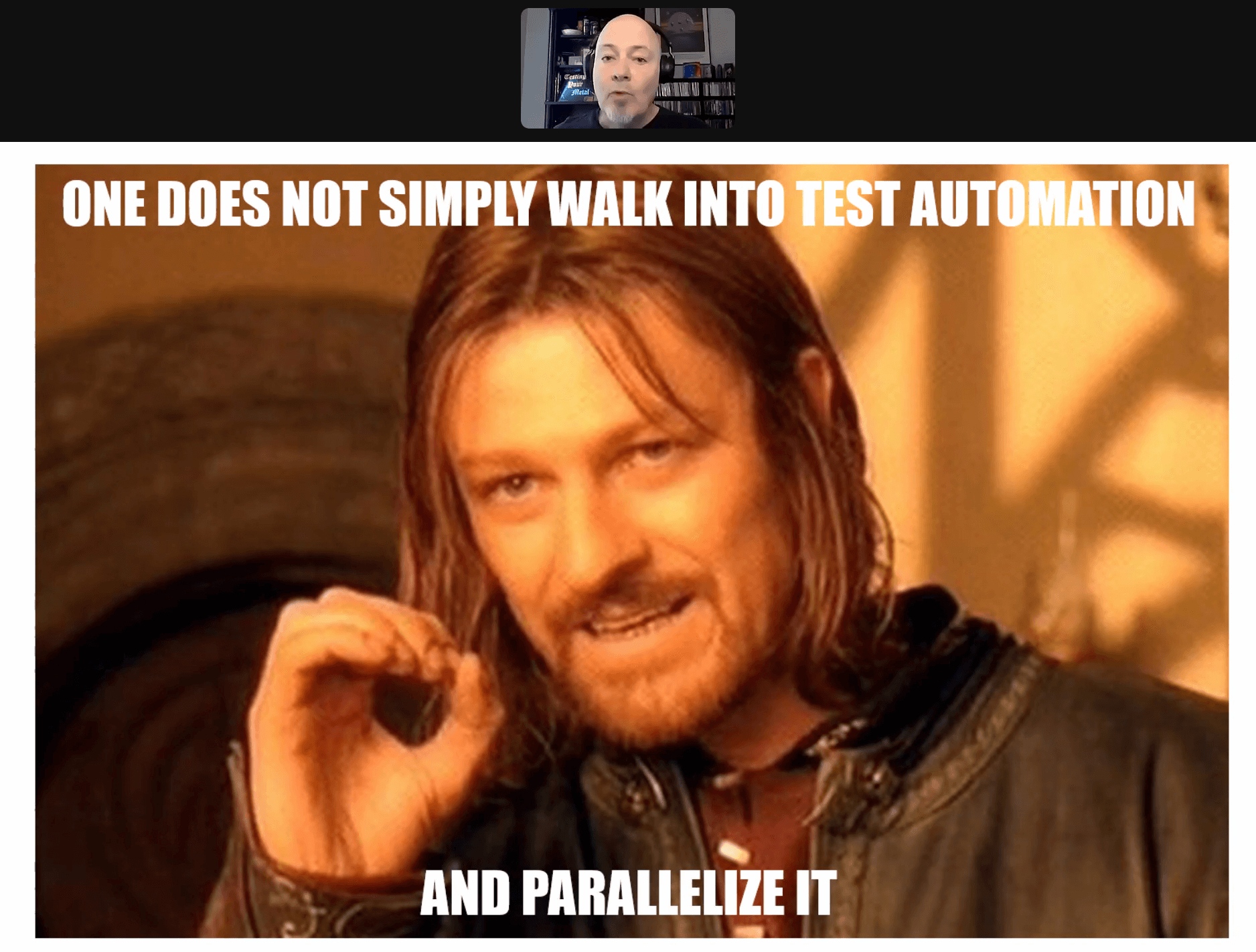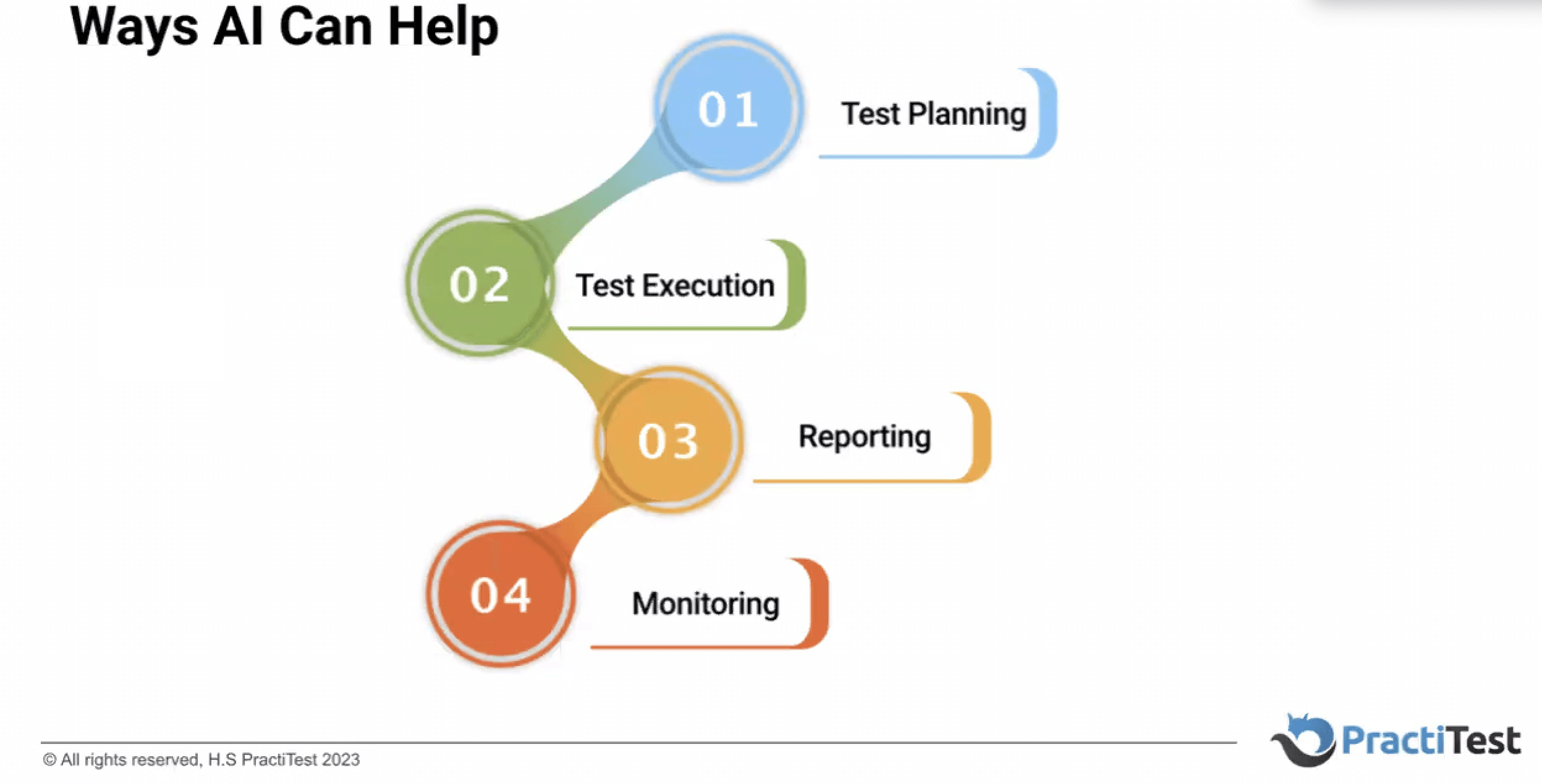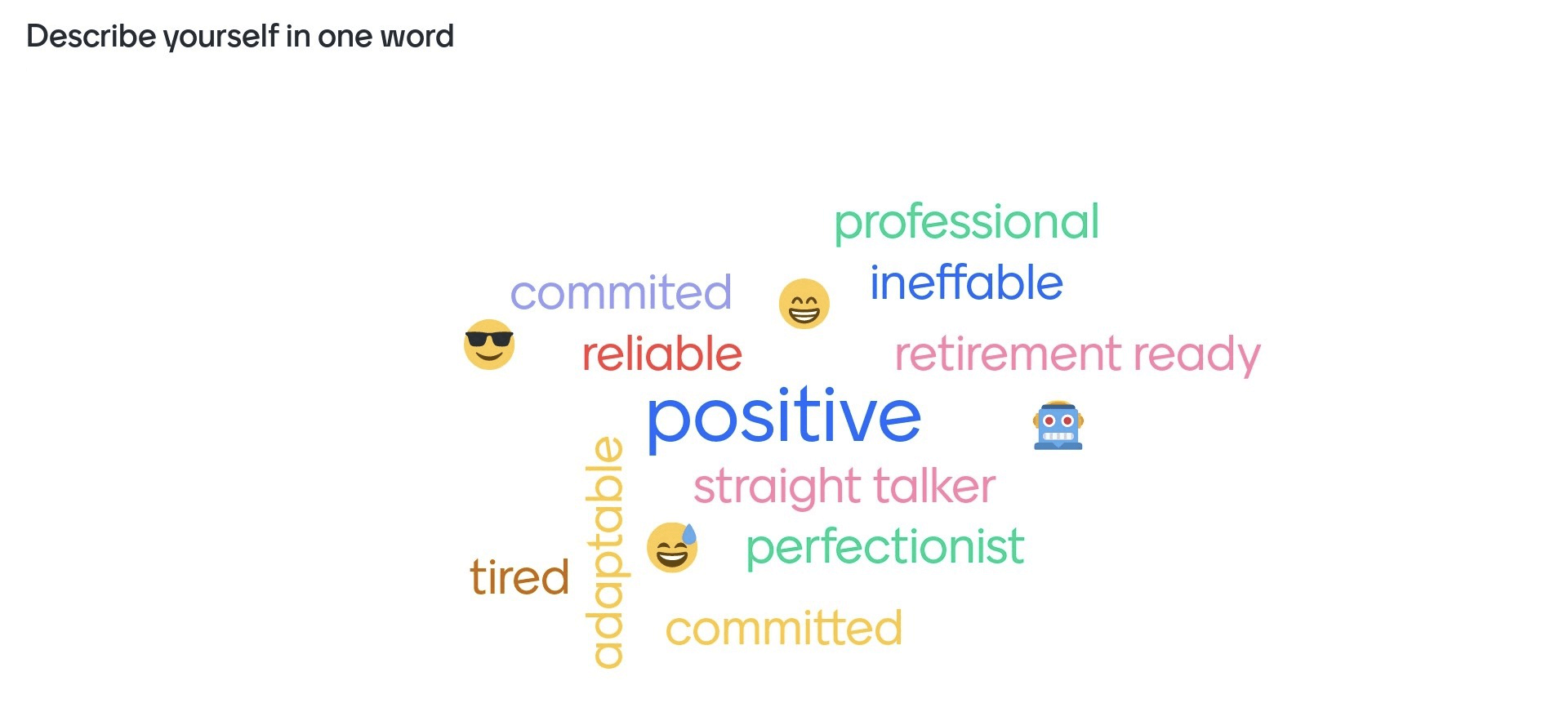A Recap Journey of OnlineTestConf 2023!
In This blog
This week we had the 13th OnlineTestConf, an all-online testing event aimed to enable testing professionals from around the world to continuously improve their testing knowledge. This event, which we launched in 2016, is free of charge for all attendees as part of PractiTest’s ‘for the community’ activities to support ongoing learning and continuous professional improvement.
This year’s event included topics such as Automation testing, testers’ involvement in CI/CD activities, testers’ well-being and burnout, test management, and of course, the 2023 most trending topic, Artificial Intelligence. These topics are correlated strongly to the results of our latest State of Testing survey that shows the increasing involvement of testers in automation and CI/CD activities with about 51% of organizations working with CI/CD in all or most of their projects.
Day 1: Embarking on the Journey
The opening session by Elias Nogueira titled “How to Quickly Generate Your API test with OpenAPI Tools and REST-Assured”, provided useful tips on how to speed up API test automation using Java as an example, but these can be used for other programming languages as well.
Next, Raj Subrameyer addressed the challenges QA professionals face in our demanding work environment, where rising requirements often clash with limited testing time. This can easily lead to stress and frustration which can always spill over and have a negative impact not only on our work performance but also on our personal life. Raj presented some statistics on the unimaginable burnout prevalence and shared practical tips and techniques to break this cycle using various methods, including mindfulness.
Automation and CI/CD Focused Sessions
With the integration of automation testing into the SDLC (Software Development Life Cycle), some believed it marked the end of the software testing profession. Jay Aigner, the CEO of JDAQA, emphasized in his session the distinction between an ideal world with complete automated testing and the current reality which is far from that. Aigner delved into various testing activities, highlighting those well-suited for automation like load testing, performance testing, and smoke testing, while identifying others that shouldn’t be automated given today’s capabilities.
The first day concluded with 2 sessions about DevOps: Fran Guerrero had a session about API testing within CI/CD while Paul Grizzaffi talked about the challenges of parallelizing concurrent automated test scripts in a CI/CD pipeline and the associated risks including data and State corruption and deadlock. In both cases, we were reminded again about the importance of human decision-making, even in the decision on how to overcome volume and budget challenges when deciding what to run, in a way that will best meet your specific organization’s needs, in the very familiar scenario when we encounter time and money limitations.

Day 2: Diving Deeper & Conclusions
The event’s second day started with a session led by Joel Montvelisky, PractiTest Chief solution architect and the OnlineTestConf co-founder. Joel’s session focused on the future of test management while reviewing what has changed over the past few years and key strategies to better adapt to these ever-occurring changes.
Later, it was time for the most trending topic of this year, AI! Our very own Ido Tandy talked about how we can transform quality assurance with AI-driven test management. He described the difference between types of AI: based on capabilities vs functionality, and the various usages AI can assist in the software testing process from test planning to test execution, reporting, and monitoring. In his session, Ido also demonstrated PractiTest test management platform capabilities that are already available for our customer base as well as the capabilities that will be launched in the near future.

Real-life Insights
Mohita Prasad from AST introduced a success story about the usage of the PractiTest Test Management platform, creating a testing center of excellence (TCoE). She elaborated on the different roles of the leadership in a Testing Center of Excellence (TCOE), from setting up test environments, writing test cases, overseeing test execution, defining governance, and providing strategic direction.
“We don’t have enough time to test” is one of the most common complaints we hear from software testers, when we ask an open question about challenges in the above-mentioned state of the testing survey. So it’s true that we can’t pause time from running, but we can look for ways to improve our project delivery. This was the idea behind the final session by Antony Lipman: Fast-tracking project delivery, tips from a received workaholic.
Day 2: Getting to Know Each Ohter During Breaks
During the breaks between sessions, participants had the opportunity to grab a snack, make a cup of coffee, or simply chill. Engaging testing quizzes and interactive activities were also on the agenda, allowing attendees to not only enhance their knowledge but also get to know better other participants, breaking the ice in a lighthearted and enjoyable manner.

We want to express our sincere gratitude to all our speakers who generously shared their time and expertise. Your insights were truly valuable, and we appreciated learning from your extensive professional knowledge. A special thank you goes out to every attendee of our 13th OTC conference! We trust that you’ve acquired additional knowledge that will undoubtedly contribute to your growth as a software testing professional, ultimately enabling us all to deliver and use higher-quality products.























